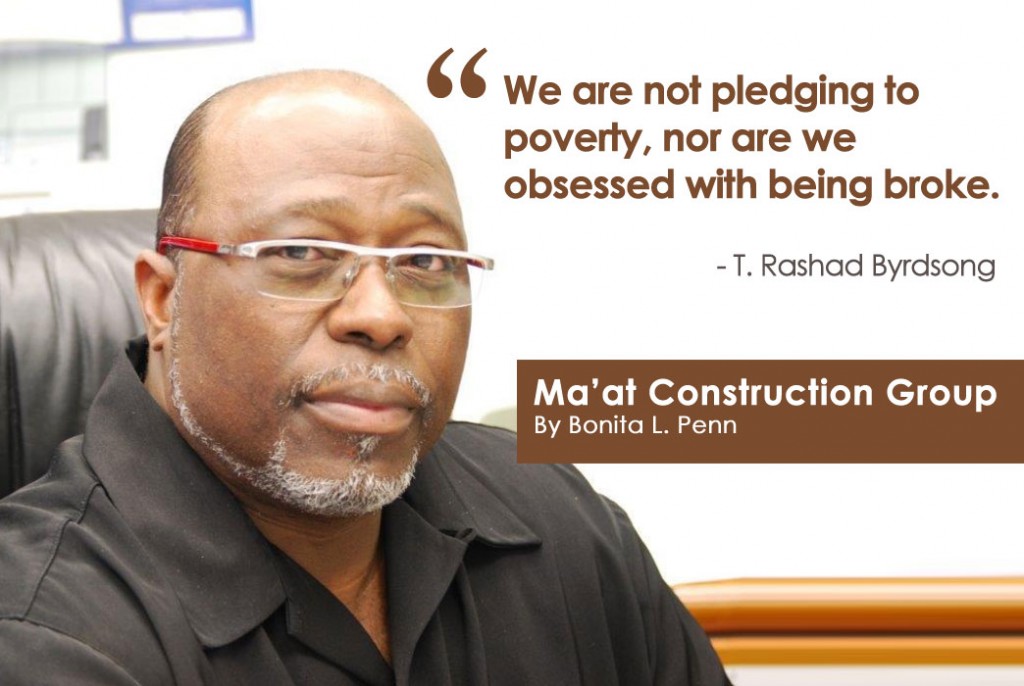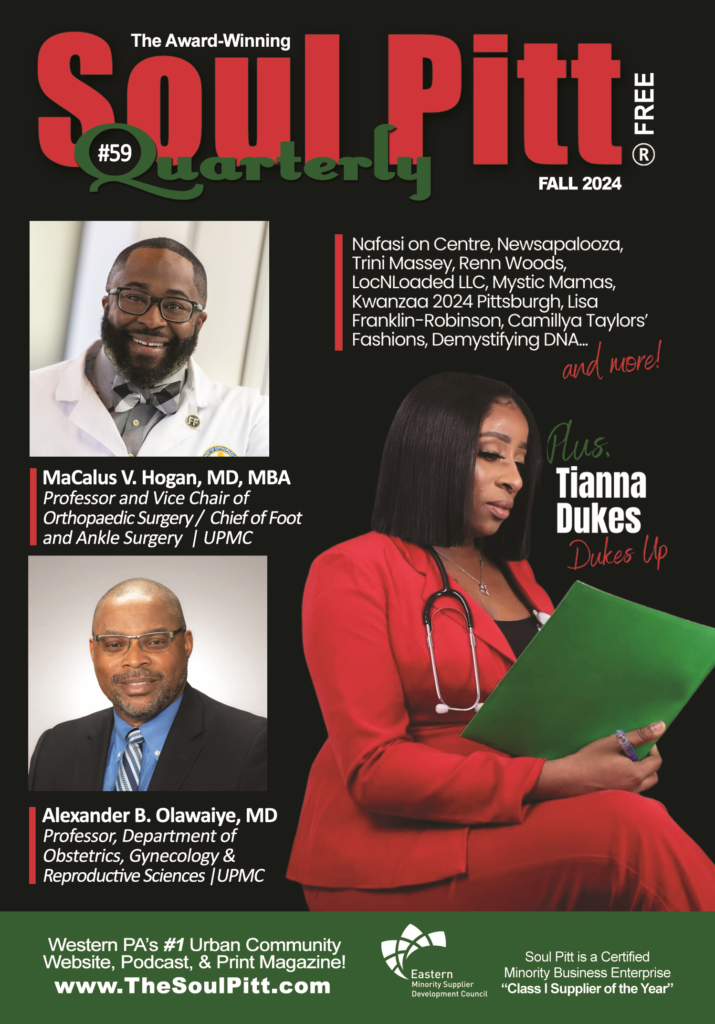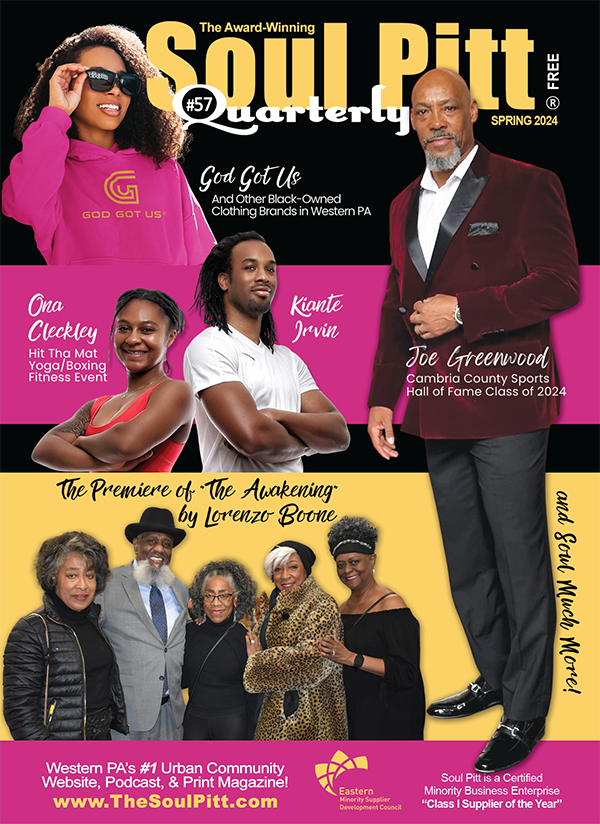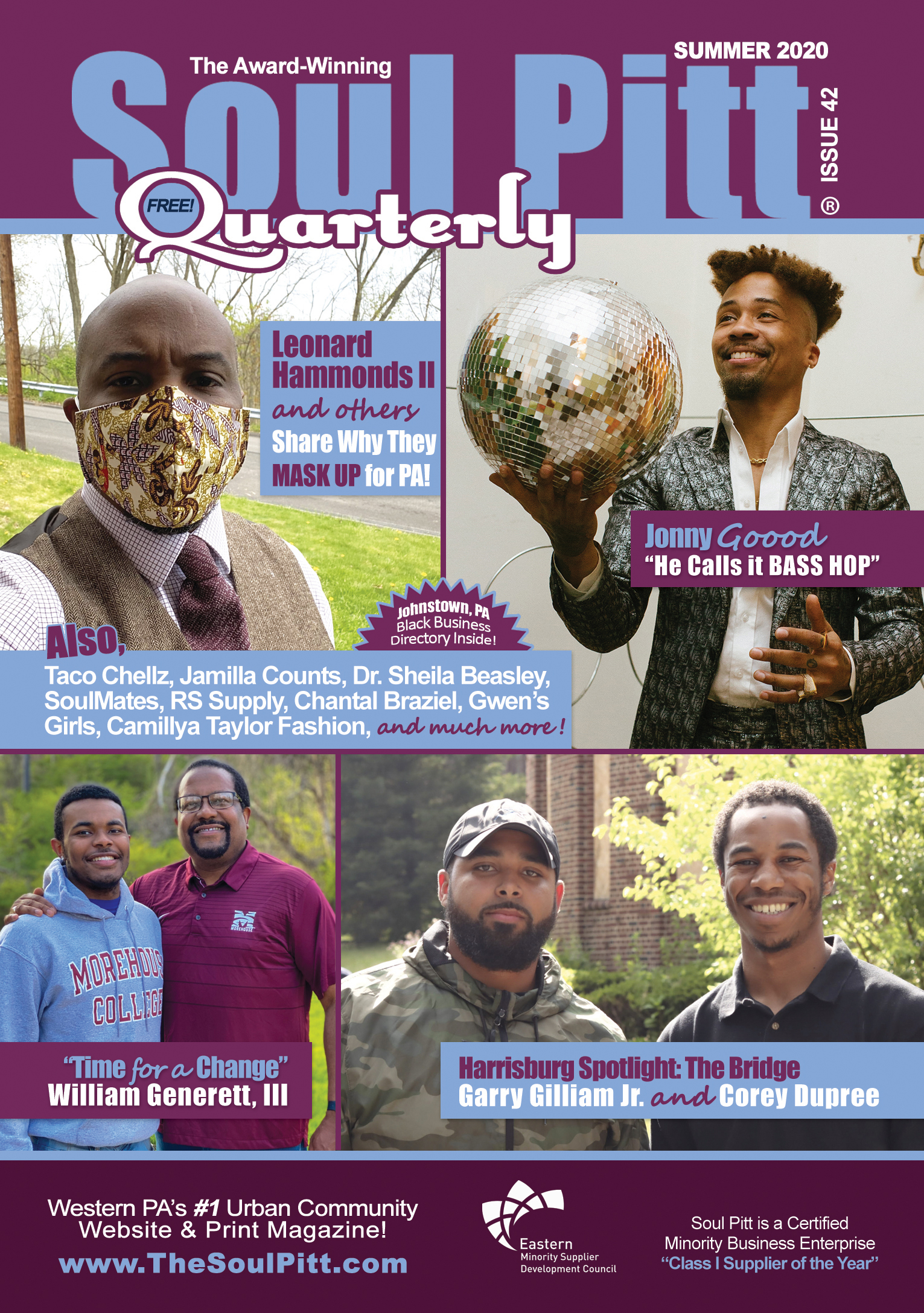By Bonita L. Penn
The City of Pittsburgh is experiencing another major economic Renaissance of rebirth and renewal. The City falls in line with many U.S. urban communities in gentrification and revitalization, such as Washington D.C., Brooklyn and Harlem. It is the dawn of economic abundant in our communities when it comes to opportunities for construction companies. One such company Ma’at Construction Group, located in Pittsburgh’s Homewood neighborhood, has been selected by Bridgeway Capital as the General Contractor for the first stage of the 7800 Susquehanna Street project.
The goal is to re-purpose the industrial building (the former Freight Liquidators Building) into a platform of economic renewal in the Homewood community.
As General Contractor, Ma’at will provide all the material, labor, equipment and services necessary for the construction of the entire project, from the idea phase to the finished project.
“This is our first experience leading a project of this scale,” said T. Rashad Byrdsong, co-owner of Ma’at Construction. At completion of this project, Ma’at Construction plans on leasing space to expand its operations and provide educational opportunities for minority-owned construction companies.
Pittsburgh’s construction boom has not always been conducive to Black contractors. Byrdsong comments that in April of 1999 when construction of PNC Park got underway on the City’s north side, not many African-Americans were working. He saw the discrepancy as a disconnection of people of color and construction jobs. “It was not only the construction’s labor workforce, but the architects, lawyers and engineers,” he added. As an active member of his community and executive director of the non-profit organization, Community Empowerment Association (CEA), Byrdsong took action. He organized several community forums, one which was attended by over 500 community members, several Unions, non-profit organizations, City and County officials. They all wanted to know how to ensure that more African-Americans were hired for construction jobs.
The participants walked away from the forum with the common consensus that African-Americans would be given more employment opportunities, the only problem, there was no oversight procedure put in place. Not a person to depend on others to determine or control his community’s employment status, Byrdsong belief in being economically self-sufficient, led him to establish Ma’at Construction Group.
Ma’at is the ancient Egyptian concept of truth, balance, order, law, morality and justice. “This is the symbolism behind the creation of Ma’at Construction. It wasn’t established for material gain, but to develop human spirit when it comes to helping people in the community to take care of their basic fundamental needs,” said Byrdsong.
The establishment of the construction company was not the only answer to end the economic woes of the community. There were other challenges which stemmed from the Unions “good old boys” environment. “We didn’t just create a company, but a movement that stood for the interest of the working class in Pittsburgh. Also, the tradesmen, many who were in the Union but who did not receive equal consideration when it came to steady employment,” Byrdsong said. Many people were misinformed that being in the Union meant they would work steady. Being an African-American Union member you were not extended those benefits.
“We are not pledging to poverty,
nor are we obsessed with being broke.”
– T. Rashad Byrdsong
When Johnnie Comer, co-owner of Ma’at Construction, completed his apprenticeship program he was one of the lucky ones. Unlike many of his brothers in the Union, he did receive a steady stream of work. Instead of waiting for the Union to offer them work, those African-American carpenters, organized their own organization and stared working. The Union got wind of it and called out Comer to remind him how good they’ve been to him, calling the new African-American organization “subversive.” In the end the Union started to offer more jobs to the African-Americans, cutting out this competition.
Comer stated what is holding the African-American worker back is not always racism. “Sure it does exist,” he said. “We tell the guys that come through the training, you can’t say someone won’t hire you based on race, when you can’t divide a fraction, or have the skills to function on a project.”
At one time being under skilled was a hindrance in the longevity of employment on projects for the African-American laborer. To fill the minority quota on construction sites, the general contractor would hire anyone from the community. Usually these workers would not have the skills or mental capability to function on the job and would be fired within days, at times within hours. That is how the minority quota use to be filled, and the reason you would ride by a construction site and see no African-Americans at work. The quota as it stood was not working for our communities.
Workforce Development Coordinator and Construction Project Manager, Judy Ginyard shared how CEA stepped up and met this challenge with the CEA Workforce Development Training program. The program is a 9-12 week training in carpentry, construction math, lead abatement, OSHA safety, construction drawings, energy efficiency & weatherization, finish with hands-on in the field training. This type of strategic training assist to enhance the recruitment and retention of African-Americans on projects. Not only are we able to refer workers to the contractors to fill their minority quota, but they have the skills to be employed long-term.
“We were able to prove that there could be a successful relationship between a grassroots non-profit organization (CEA Workforce Training) and major construction development. Once the men/women in the program graduated, their training did not end. They were placed with experienced journeymen, many who offered their expertise to the program, to continue to build their skills while on the job,” Byrdsong added.
Under the leadership of Comer, Byrdsong and Ginyard, Ma’at has developed a strong foundation of expertise across the board, which range from the skills of the general laborer, to construction management, architect and accounting. These are some of the important factors that take center stage when a company submits bid for projects. This additional awareness confirmed that the competition factor is not always race. “One thing we have been able to do is develop our skills and knowledge to compete in the broader construction market,” Byrdsong said.
Through their reputation and growth in the construction sector, Ma’at has recently been awarded a contract with the Housing Authority of Pittsburgh to provide construction training for their residents. This training will assist residents to be hired on the various Housing Authority projects in the Hill District and in Larimer where 1200 new houses will be built. Byrdsong comments that a lot of people are hearing of the company’s success. Ma’at has received calls from Hazelwood and the North Side for various construction assistance. He believes, given the political climate of the country we need to be able to showcase success coming from Blacks, we have become the authors of the work that we do.
“General Contractors are calling on Ma’at because we have a good track record. We have to be able to become economically self-sufficient, the new civil rights movement is economics. In order to do that we have, we need to figure out how we can compete. Whether you like it or not, it is food, clothing, shelter, and we have to make sure our community has these fundamentals. We need to make sure we have jobs to provide, send our children to college, to buy a house and do what all citizens do,” Brydsong said.
Ma’at has taken on several partnerships going into 2015 with the HACP, KBK, Mistick, Mascaro and P.W. Campbell. The company has secured more than ten future major projects such as the Larimer new housing development, Hot Metal Bridge and 30 Water Street and HACP scattered sites. They have even collaborated with Community College of Allegheny County with a class on construction project estimates. Not only were there African-Americans in attendance, but white women and others who have been shut out of this industry for the lack of knowledge.
“We as African-Americans need to speak more about development and entrepreneurship. To work on financial independent, that is why we fight hard to get the development projects,” Byrdsong said. “We have become the voice of the voiceless. We go to jobs, we sit down at the table and echo the sentiments of our community. The more we grow, the more we can bring into our community.”
The complete story of Ma’at Construction Group and Community Empowerment Workforce program will be published on the Soul Pitt website in February, make sure to click on and read more about this empowering and uplifting force in our community.
The CEA has a family approach, it offer an entire support circle to the community; including after school and Saturday programs for the youth; parental social resources; and employment training. For more information on CEA Workforce training and other family resources click on to their website at www.ceapittsburgh.org.






















